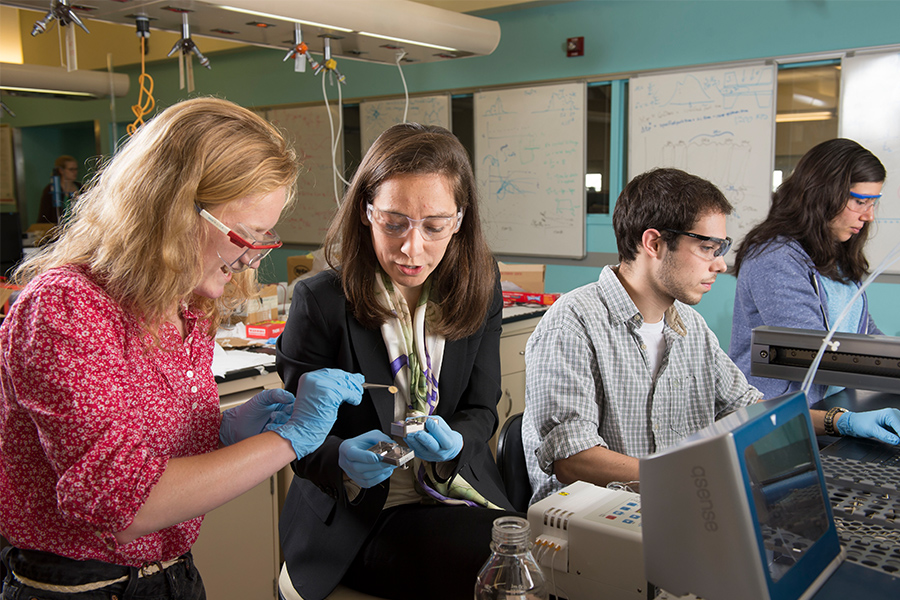
CMU Researchers to Develop Novel Solar-Thermal Desalination Process
By Amanda King
The U.S. Department of Energy (DOE) recently announced it will provide $21 million to fund projects to advance solar-thermal desalination technologies. A team of researchers from Rice University, Carnegie Mellon University, Yale University and E&S Environmental Chemistry, Inc. received $1.7 million to create and test a new solar-thermal desalination process called Nanophotonics-Enabled Solar Membrane Distillation (NESMD).
Desalination is a treatment method for contaminated water, seawater and brackish water for use in municipal and industrial water supplies, or other reclamation projects. NESMD utilizes a porous, photothermal membrane to simultaneously convert sunlight to heat and desalinate water by membrane distillation with very high thermal efficiency.
Associate Professor of Civil & Environmental Engineering and Engineering & Public Policy Meagan Mauter will lead the CMU research team that received nearly $734,000 of the total award.
“To date, research evaluating NESMD and other solar desalination technologies has been limited to bench scale analyses that can't adequately scope the strengths and limitations of these innovations,” said Mauter. “This project will take an integrative approach, combining fundamental heat and mass transport modeling, module and process optimization, techno-economic assessment and field scale piloting to clearly identify the potential for distributed solar desalination technologies.”
Mauter and her team’s project is one of 14 funded projects by the DOE that focus on reducing the cost of solar desalination technologies and helping them reach new markets, including areas that aren’t connected to the electric grid.